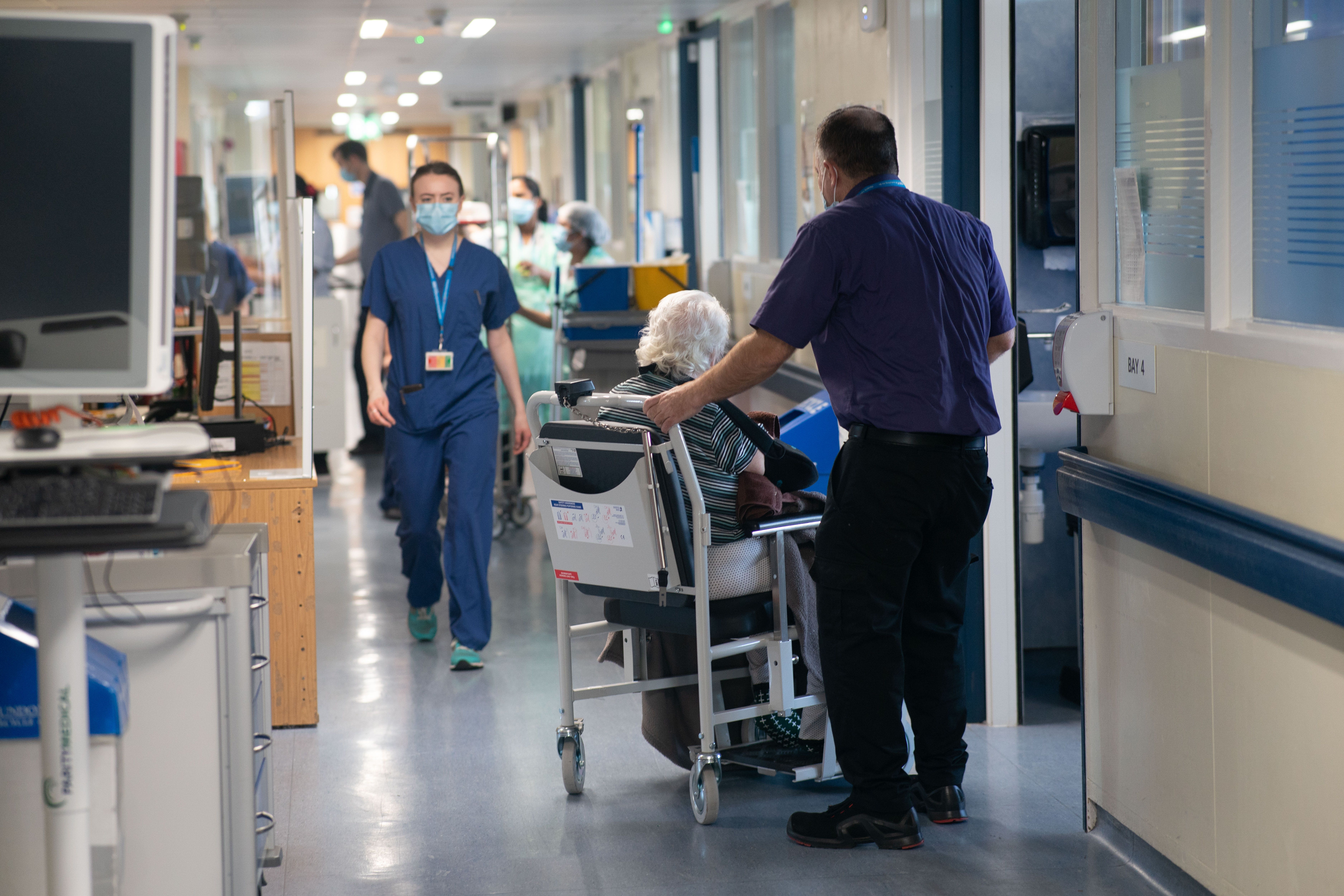NHS waiting list falls slightly for the first time in a year
Number of patients waiting 12 hours in A&E dropped slightly to 144, 805 in November

The NHS waiting list has dropped for the first time in a year, with a backlog of 7.71 treatments recorded, new figures show.
The backlog is down from a record 7.77 million treatments in September. The last time there was a month on month improvement was November 2022 when the backlog decreased to 7.19 million from 7.21 in October 2022.
New data published by the NHS revealed there are 6.44 million individual patients on the waiting list in October down from 6.50 million patients in September.
Some 10,506 people in England are estimated to have been waiting more than 18 months to start routine hospital treatment - up from 10,201 at the end of September.
The government and NHS England set the ambition of eliminating all waits of more than 18 months by April this year, excluding exceptionally complex cases or patients who choose to wait longer.
Meanwhile 144,805 patients in November waited more then 12 hours in A&Es accross England to be seen, treated or discharged -down from 152,115 in October.
Some 69.7 per cent of patients in England were seen within four hours in A&Es last month, down from 70.2 per cent in October. The figure hit a record low of 65.2 per cent in December 2022.
The NHS recovery plan sets a target of March 2024 for 76 per cent of patients attending A&E to be admitted, transferred or discharged within four hours.
Dr Tim Cooksley, immediate past president of the Society for Acute Medicine, warned: “Urgent and emergency care services are entering survival mode - if not in it already - hoping to sustain basic levels of care and reluctantly accepting that delivering high quality care for many patients will not be possible for at least several months.
“The psychological impact of this winter will see many more staff leaving the service as we continue to haemorrhage clinical workforce, further deepening the extent and duration of the crisis.”
The A&E figures come as weekly data from NHS England shows winter viruses continued to increase accross hospitals last week compared to the week prior.
Data shows 402 patients were in hospital beds with flu, up from 243, and 506 adults in beds with norovirus up from 406.
The numbere of staff off work is also increaseing with an average of 49,020 each day last week, from 47,018 the week before.
NHS national medical director, Professor Sir Stephen Powis, said: “With the overall waiting list for elective care coming down, ambulance response times faster than both last month and the same time last year, as well as hundreds of new staff joining the emergency care workforce ahead of winter, this progress is excellent.
“While the sheer amount of care being delivered for patients by our staff is incredible, we know we still face a challenging winter on a number of fronts, with the number of patients in hospital with flu and norovirus increasing considerably each week, continued issues discharging patients who are medically fit due to a lack of social care capacity, and another period of industrial action ahead of a the Christmas Bank Holidays.”
Some 71.1 per cent of patients urgently referred for suspected cancer in October were diagnosed or had cancer ruled out within 28 days, up from 69.7 per cent the previous month, according to NHS England. The target is 75 per cent
A total of 269,492 urgent cancer referrals were made by GPs in England in October, up 5 per cent on 257,702 in September, and also up 8 per cent year-on-year from 249,226 in October 2022.
However, the proportion of patients in England waiting longer than 62 days in October from an urgent suspected cancer referral or consultant upgrade to their first definitive treatment for cancer fell with 63.1 per cent recorded, down slightly from 63.3 per cent in September. The target is 85 per cent.
Subscribe to Independent Premium to bookmark this article
Want to bookmark your favourite articles and stories to read or reference later? Start your Independent Premium subscription today.

Join our commenting forum
Join thought-provoking conversations, follow other Independent readers and see their replies